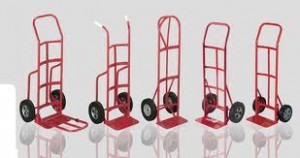 Gas cylinders are metal containers that store gas under pressure. The gases can be toxic, flammable and corrosive and prone to explosion. The cylinders should be stored in protective cabinets and handled by trained personnel using suitable trucks.
Gas cylinders are metal containers that store gas under pressure. The gases can be toxic, flammable and corrosive and prone to explosion. The cylinders should be stored in protective cabinets and handled by trained personnel using suitable trucks.
Compressed Gas
Compressed gas comes in two standard types of cylinders. Refillable cylinders are made of steel or aluminium and are designed for refilling and repeated use over a specific period. Non-refillable cylinders are for use one time only and should never be reused. Gas cylinders can contain a variety of pressurised gases in liquid form, though carbon dioxide can be stored as both a liquid and a gas. Other types of gases can be flammable, such as acetylene and methane, corrosive like chlorine, or for cryogenics such as nitrogen and argon. Oxygen cylinders need a separate material handling system. They contain a highly reactive gas that is extremely dangerous even with small leaks. These leaks are odourless but can set fire to any material, especially human hair.
Heat causes the cylinder to expand and contract and change their internal pressure. Aluminium cylinders are more affected by heat than steel and liable to rupture. Welding carried out near a gas cylinder can cause arcing. Sometimes the heat of an arc is enough to cause a pressure explosion or to activate a pressure relief device. The cylinder can fall to pieces and explode causing serious injuries to anyone close by. Incorrect material handling of a cylinder can cause dents while salt or chemical spills on a storage room floor corrode it from the bottom. Leaks of gas can occur from improper handling or factory damage.
Storage
There are some standard material handling rules for gas cylinder storage. They should not be stored for long periods of time to protect against slow degradation of the cylinder. It’s always best to buy sufficient gas to cover short-term needs. The cylinders themselves should be stored on a flat surface in a safe, well lit and well ventilated place. Protective gas cylinder lockers will lessen the hazards.
 The cylinders should be segregated according to the properties of the gases they contain. They should be kept away from other chemicals, open fires or flammable substances. Oxygen cylinders, used for medical or other purposes, should be handled using a purpose built trolley. They should be chained and clamped and prevented from falling over. They should be stored away from other substances and especially cylinders of flammable gas. Compressed gases that are heavier than air should not be kept in low lying areas, basements or near drains and ducts in case any leak poisons into air and water outflow from a building.
The cylinders should be segregated according to the properties of the gases they contain. They should be kept away from other chemicals, open fires or flammable substances. Oxygen cylinders, used for medical or other purposes, should be handled using a purpose built trolley. They should be chained and clamped and prevented from falling over. They should be stored away from other substances and especially cylinders of flammable gas. Compressed gases that are heavier than air should not be kept in low lying areas, basements or near drains and ducts in case any leak poisons into air and water outflow from a building.
Handling
Anyone handling gas cylinders should take care not to drop, drag or roll the cylinder on the floor. They should be moves using special gas cylinder trucks, lifts and other adapted vehicles. It’s important to check that the valve in use for releasing the gas is not defective by examining the cylinders at regular intervals.
Cylinders containing compressed gas should be stored and handled carefully by trained personnel using trucks and trolleys designed for this purpose.
AUTHOR BIO
Maria John is a mechanical engineer and has been designing trucks and trolleys for gas cylinder and material handling for over 20 years.

